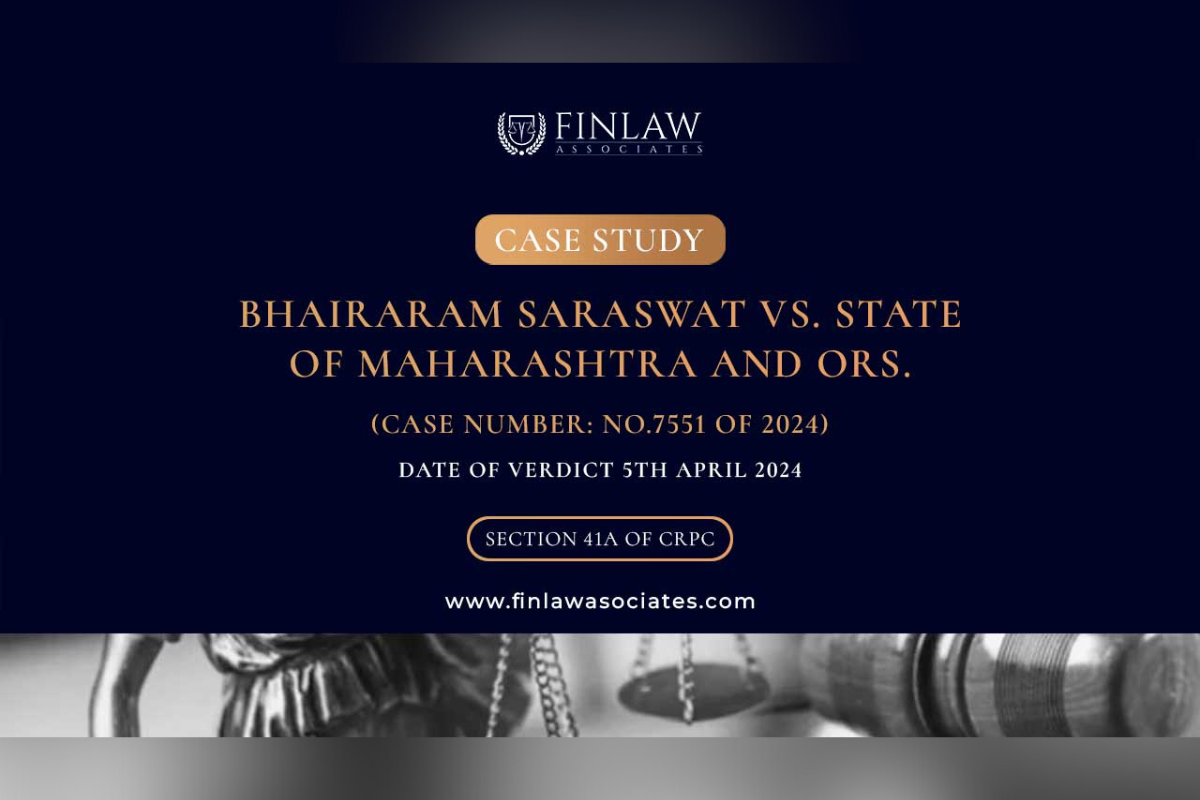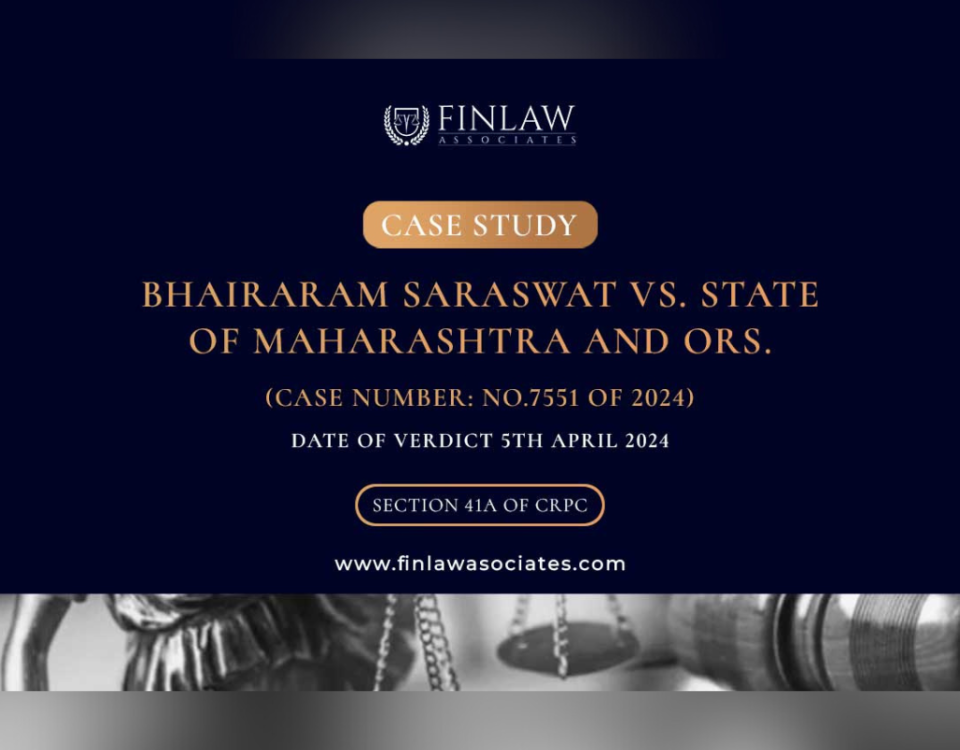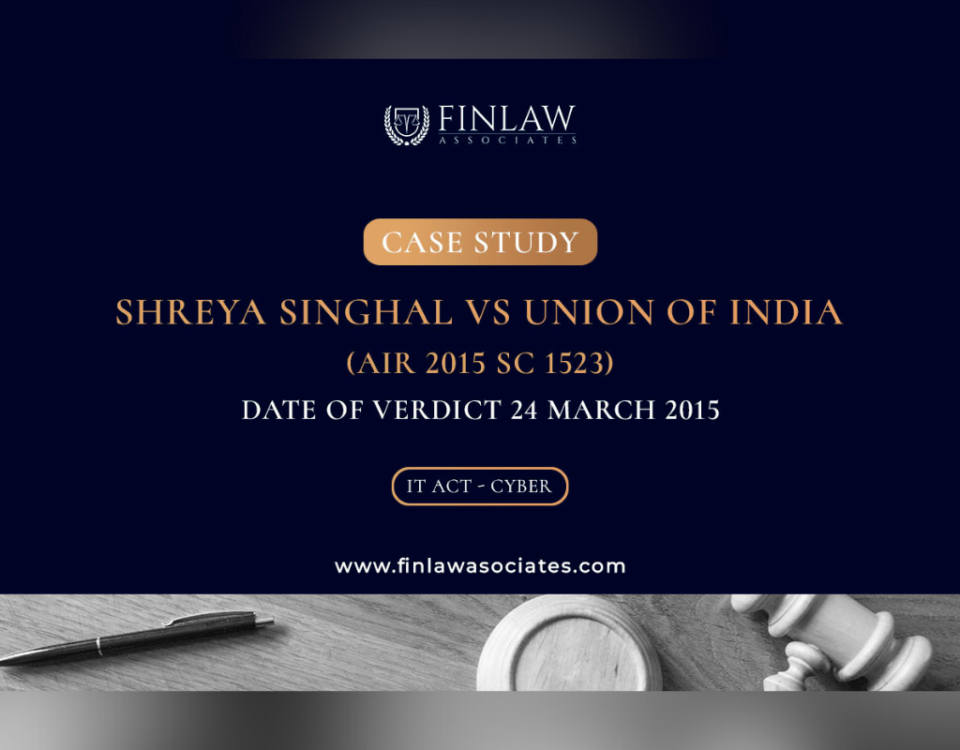
Case Study: Shreya Singhal Vs Union Of India (AIR 2015 SC 1523)
March 27, 2024
How Can Cybercrime Lawyers Help Victims of E-Commerce Marketplace Fraud
May 15, 2024
Date of Verdict: 5th April 2024
Case Number: Criminal Writ Petition (Stamp) No.7551 of 2024
Introduction
The Division Bench of Hon’ble Bombay High Court comprising of Revati Mohite Dere, Manjusha Deshpande, JJ. granted interim bail to the petitioner who had been arrested for offences under Section 420 read with Section 34 of the Indian Penal Code, 1860 , that require the service of notice under Section 41-A of the Code of Criminal Procedure, 1973. The Court stated that the allegations made by the petitioner against his arrest had substance, and directed the Deputy Commissioner of Police, Zone 2, Mumbai, to apply for Call Detail Records and WhatsApp messages and call logs of the petitioner and the respondent.
Fact of the case
The petitioner has filed a petition against his arrest by the police, alleging it illegal, and in contravention of Section 41-A of the Code of Criminal Procedure, 1973 , amongst other grounds. It is alleged by the petitioner that he was arrested for offences under Section 420 read with Section 34 of the Indian Penal Code, 1860 , wherein the service of notice under Section 41-A of the Criminal Procedure Code 1973 is mandatory. The petitioner also alleged that post arrest, his phone had been used by the Investigating Officer for nearly 10 days to demand bribe from the petitioner’s father to settle the arrest.
Issues of the case
- The service of notice under Section 41-A of the Criminal Procedure Code 1973 is mandatory?
- Police can arrest accused in Civil clothes without disclosing there identity as police along with not stating accused the reason for his arrest?
- Police can take sign and thumb impression of accused after arrest on Section 41A notice?
Judgement of the case
The two judges bench decides that Prima facie, they were doubtful whether Section 41A notice was served on the petitioner and whether the alleged notice served on the petitioner can be said to be a notice under Section 41A, more particularly, when the petitioner was picked-up by the police, straightaway.
Prima facie, it appears that the police have not complied with the provisions of law and as such there is substance in the allegations made by the petitioner in the aforesaid petition. Custodial torture is also alleged. The allegations as against the police officers are serious and the same need to be responded to by them.
Prima facie, considering there is violation of the provisions of law, in the peculiar facts, we deem it appropriate to grant interim bail to the petitioner until further orders.
In the meantime, Deputy Commissioner of Police, Zone 2, Mumbai, to apply for not only the CDR of the petitioner from the period 19th March 2024 to 30th March 2024, but even messages/calls made through WhatsApp from the petitioner’s mobile.
Analysis of the judgement
The offence of section 420 of Indian Penal Code 1860 is classified as Cognizable , Non- bailable, Compoundable with permission of the Court before which any prosecution of such offence is pending and triable by magistrate of the first class . As Section 420 of IPC is Cognizable then as per the definition of Section 2(a) Criminal Procedure Code 1973 cognizable offence” means an offence for which, and “cognizable case” means a case in which, a police officer may, in accordance with the First Schedule or under any other law for the time being in force, arrest without warrant; then there is no requirement of compliance of Notice under Section 42A.
But arresting the accused forcefully without stating him the reason of his arrest is the clear violation of the judgment of the Apex Court in the case of D. K.Basu v/s State of West Bengal. As police detained the petitioner from his place of work and did not serve him a notice under Section 41A Cr.PC. This, was violation of the mandate of the Apex Court in the case of Satender Kumar Antil v/s Central Bureau of Investigation. But the definition of cognizable crime itself states that when the crime is of cognizable nature then there is no requirement of warrant from court, Court didn’t consider the fact and here its misuse of Section 41A by petitioner.
Hon’ble Bombay High Court granted interim bail to accused for six weeks on bond of Rs.25000 and instructed to DCP Zone 2 Mumbai to collect the CDSR report of accused mobile, what’s app chat and CCTV footage of accused shop.
As per the submission of accused advocate that sec.41A notice is not issued to the accused at the time of arrest but L.T Marg Police station serve 41A notice to the accused before his arrest from his shop in Ahmadabad, but they serve it to accused after reaching in Mumbai and police take sign and thumb of accused on same forcefully. Now the Hon’ble want to analyze that is 41A notice before arrest or after arrest.


